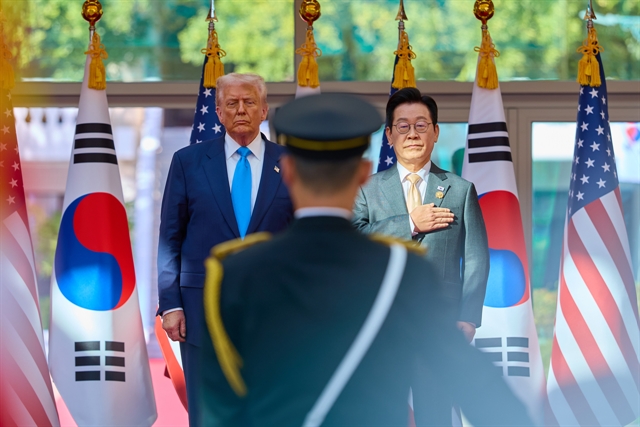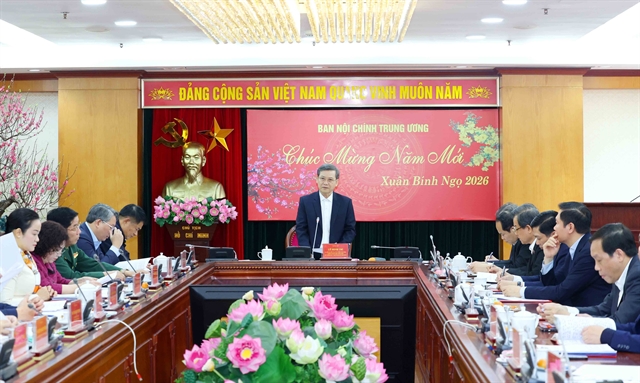 World
World

Confidence in investment increases as China emphasises high-level opening-up. Zhong Nan reports.
 |
| An employee tests LED lights at a technology company in Ruichang, Jiangxi province. WEI DONGSHENG / FOR CHINA DAILY |
Drawn by efforts to ensure that cross-border investments are profitable as well as safe amid global uncertainty, Agustin Pedroni, an Argentine who is president of Bridgestone (China) Investment, has been busy in recent months travelling across China to meet with clients and business partners.
The Japanese tyre manufacturer plans to invest 562 million yuan ($78 million) in China over the next three years, focusing on building production bases and increasing the output of high-performance car tyres.
Bridgestone’s decision to expand investment in China reflects the country’s consumption upgrade and the Chinese government’s ongoing efforts to promote high-level opening-up and enhance the efficiency of a unified national market, experts and officials said.
Addressing the third plenary session of the 20th Central Committee of the Communist Party of China, which concluded last month, Xi Jinping, general secretary of the CPC Central Committee, highlighted the crucial role of reform and opening-up in different periods of China’s development. He said that on the new journey in the new era, the nation still needs to rely on reform and opening-up to create new prospects for Chinese modernisation.
“Economic structural reform will remain our priority in further deepening reform comprehensively,” Xi said. “The main tasks in this regard include improving the systems and mechanisms for enabling high-quality development, fostering new growth drivers and strengths, upholding and fulfilling the commitments to the public and nonpublic sectors, building a unified national market, and refining the systems underpinning the market economy.”
Pedroni, emphasising China’s fast-growing, technology-intensive green industries, lucrative market potential and high-level openness to international engagement, said these factors will continue to boost confidence among multinational corporations.
As the plenum outlined China’s long-term road map, Li Yongjie, deputy international trade representative of the Ministry of Commerce, said that building a high-standard open economy is a key aspect of the reform-themed resolution adopted at the third plenary session.
Zhu Bing, director of the ministry’s department of foreign investment administration, said the government will ensure that foreign companies receive national treatment in areas such as access to resources, qualifications and licences, setting of standards and government procurement, allowing them to share in the benefits of China’s opening-up measures.
Denis Depoux, global managing director with management consultancy Roland Berger, said that China aims to transform its vast market into a significant opportunity for the global community.
Global companies’ confidence in China has continued to grow in the second quarter, with more than 40 per cent of respondents in a survey expressing increasing confidence in the Chinese market, according to a report released in late July by the China Council for the Promotion of International Trade.
The study, which gathered responses from over 400 foreign companies, highlighted positive ratings for key indicators, such as infrastructure services, market access and taxation.
The resolution adopted by the third plenary session placed great emphasis on building a unified national market and pursuing high-standard opening-up.
China will expand the catalogue of encouraged industries for foreign investment, appropriately shorten the negative list for foreign investment, remove all market access restrictions in the manufacturing sector, and promote wider opening with regard to telecommunications, the internet, education, culture, medical services and other sectors in a well-conceived way, according to the resolution.
Lu Jinyong, a professor specialising in cross-border investment at the University of International Business and Economics in Beijing, said that China’s latest economic reforms are set to strengthen the global supply chain network and enhance the integration of foreign investment with the nation’s economic growth.
For global manufacturers, automobile makers, retailers and service providers, the Chinese market has become a “fitness centre” for growth and innovation, Lu said.
“Operating in China allows them to learn from local businesses and consumers, as well as make necessary adjustments and improvements. These insights can then be applied to their operations in other parts of the world,” he added.
For instance, Schneider Electric, a French industrial and technology group, will put the second phase of an innovation base in Shanghai into operation in September to provide advanced testing services for research and development in China and will develop more green, low-carbon intelligent electrical products for Chinese users.— China Daily




